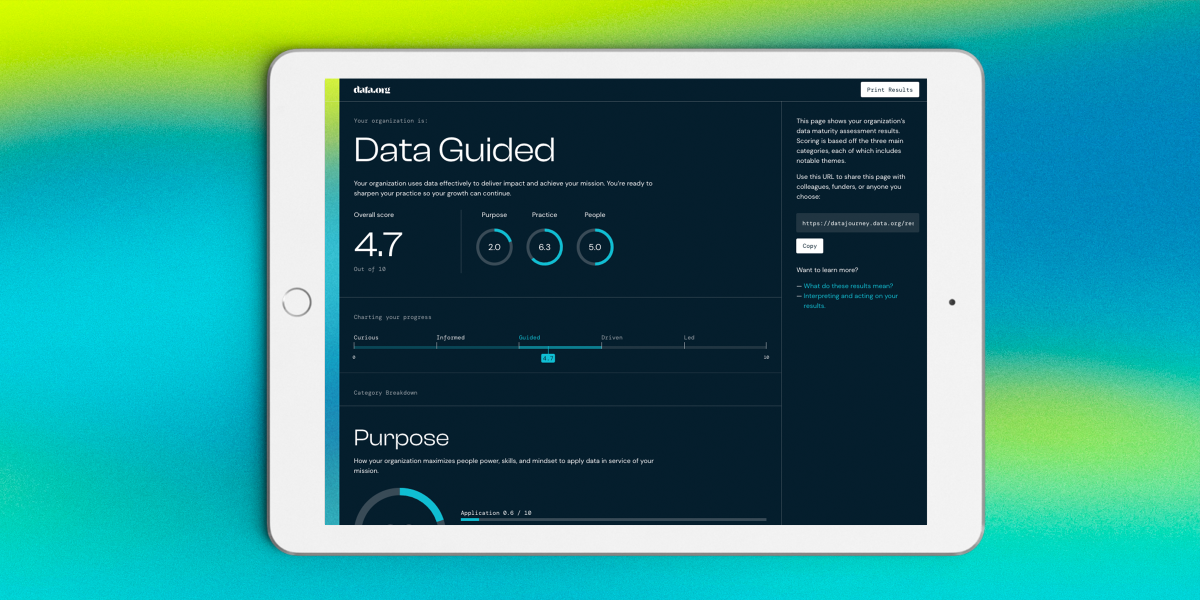Perry Hewitt and Ginger Zielinskie at Data.org: “At data.org we have heard (and personally experienced) the challenge of needing to get smarter about data, and the frustration of wading through a trove of search engine results. It takes not only time and effort, but also field experience and subject matter expertise for social impact leaders to determine if a resource is from a trustworthy source, current enough to be relevant, and appropriate for their stage of data strategy. To solve this challenge, we have built two new elements into our data.org digital platform: a Resource Library and a Data Maturity Assessment Tool….We are delighted to be launching the Data Maturity Assessment Tool. This project, too, began with the community: an early alpha co-developed in the spring of 2021 with DataKind was tested with ten organizations, and in-depth interviews yielded insights about the data topics needing investigation. With this experience and extensive desk research in hand, we sought to create a solution that was short enough to be taken online, but substantive enough to identify areas of opportunity. Our goal was to provide organizations with a pulse check, helping them measure and understand where they stand today on their data journey.

Mindful of organizations’ need to act on an assessment, we ensured the results page offers not only a benchmark score, but also specific resources aligned with areas for growth. Integration of the Tool with our Library of guides and resources via a shared taxonomy on the backend ensures that organizations receive results with specific, vetted resources for delving more deeply into content. We also heard from social impact organizations that a significant obstacle in launching and sustaining a data competency is developing and communication a shared understanding of areas for opportunity and growth. With this challenge in mind, the results page is mindfully designed to be sharable with organizational leadership, boards, or funders to provide clarity, and to set the stage for an ongoing data conversation….(More)”.